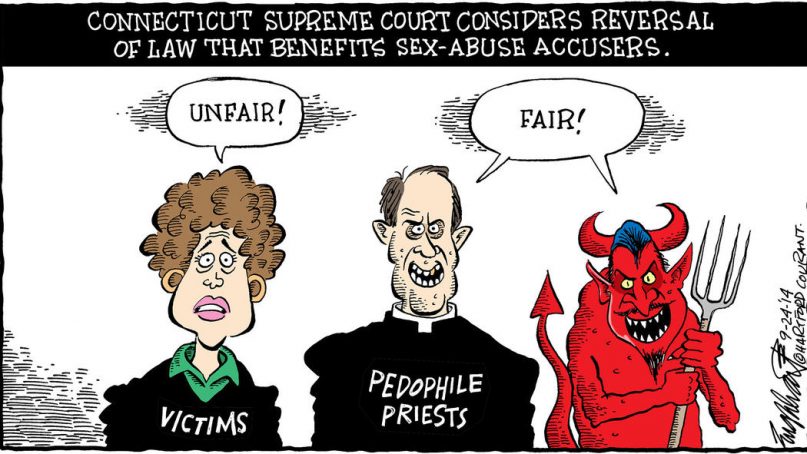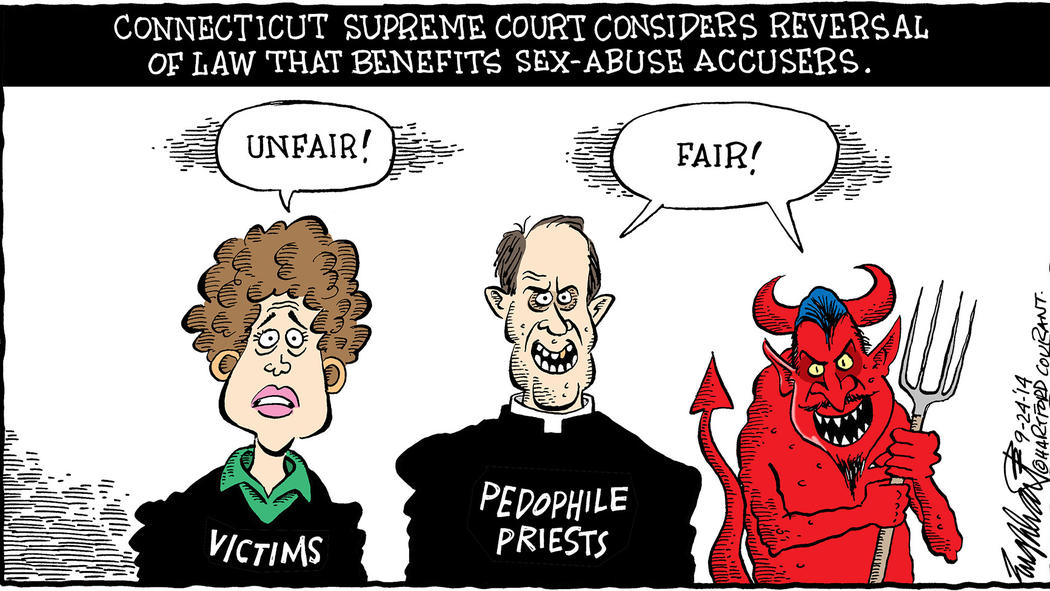“Is there something in the drinking water up there? What the hell is wrong with the MEN representing the Hartford Archdiocese?…I come back to the same image, over and over again, how do these LAWYERS and CHURCH LEADERS stand upright?”
The occasion for this email outburst, from retired Philadelphia police captain Michael Skiendzielewski, was the — on the front page in the Hartford Courant — that the Archdiocese of Hartford is appealing a $1 million judgment in a priest molestation case on the grounds that the case unconstitutionally relies on Connecticut’s extension of its statute of limitation for sexual abuse.
The judgment came in 2012, after a trial in which a jury took just four hours to find the archdiocese negligent and reckless in its supervision of Ivan Ferguson, a priest who, testimony showed, admitted to the late Archbishop John F. Whealon that he abused two boys in a Simsbury rectory in 1979. After Ferguson received treatment for alcoholism, Wealon, at the priest’s request, reassigned him to a school for boys in Derby. There he and a friend repeatedly abused the victim and another boy between 1981 and 1983. Ferguson died in 2002.
In seeking to have the verdict overturned, the archdiocese’s lawyers argued before the state Supreme Court Monday that the victim’s lawsuit was filed unconstitutionally because the statute of limitation prevailing at the time of the abuse had expired. There’s no question that this is a legal mare’s nest.
At the heart of the issue is whether It violates the constitutional prohibition of ex post facto laws and/or due process to allow a civil lawsuit to be filed after the expiration of the original statute of limitation. Since 1795, the ex post facto prohibition in Article I has been interpreted to apply only to criminal laws (with a few exceptions) — the point being that no one should be prosecuted for an act that wasn’t a crime at the time he committed it.
In 2004, the U.S. Supreme Court ruled that the prohibition includes extensions in statutes of limitations for criminal acts. Whether it also applies in civil cases and/or represents a violation of the defendant’s due process rights is unclear. The Archdiocese of Hartford stands not only to avert the $1 million pay-out but also to foreclose any number of current and future lawsuits filed after the expiration of a statute of limitation — everywhere in the country, should the U.S. Supreme Court ultimately decide in its favor.
I’m in no position to say that the archdiocese might not prevail. But at what cost?
Over the years, Catholic prelates rationalized covering up clergy sex abuse as a way to avoid Scandal — whereby the Church is dragged into disrepute in a way that impairs the spiritual wellbeing of the people in the pews. By now it should be obvious that the cover-up has caused more Scandal than dealing openly with the abuse would ever have done. It should also be obvious that the kind of hardball legal tactics being used by the Hartford archdiocese causes scandal too.
For all I know, the archdiocese’s insurance company demanded that it pursue every possible legal avenue. If so, it should say so. Whatever the case, the spiritual wellbeing of its flock — to say nothing of a decent respect for the opinions of the community — depends on its providing an honest explanation of why it is proceeding the way it is.







